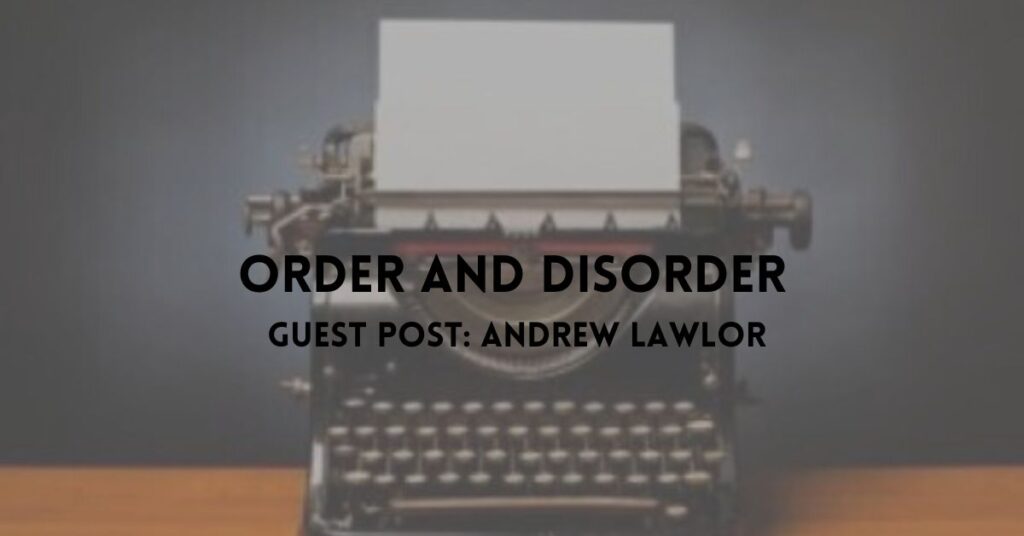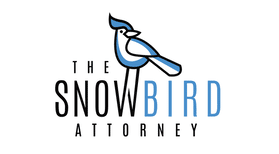
Order and Disorder. I’m not really a science guy… I have several high school teachers who would attest to that fact. Lately though, I’ve been reading about quantum physics, and have been intrigued by the concepts of randomness and entropy. Entropy is a measure of disorder within a system, generally used in thermodynamics. As I read, I started to think about order and disorder, and how it parallels the battle many of us are fighting today. Most of us remember the day our lives were thrown into chaos, uncertainty, disorder. Others, like me, don’t remember any of it, but are well aware of the effects that moment has had on our lives. And how hard we’re all working to restore order in our lives.
Randomness is a fundamental behavior in quantum physics and this assertion is supported by statistical studies showing that it’s impossible to distinguish the behavior of the universe from random. This led me to consider some fundamental questions regarding the day my life was thrown into disorder.
Why did it happen?
Why did it happen to me?
Why then?
Why there?
Why, why, why?
When giving a talk at a conference, I was asked “do you ever wonder what your life would be like if, on the day of your crash, you had stayed home for one more cup of coffee?” I have wondered that, but I don’t anymore. Not because it’s depressing, or upsetting. I don’t think about that because if I accept that, what about the 10 000 other times I stayed late, left early, got delayed, zigged instead of zagged. All that energy and heartache, trying to un-ring a bell – a bell that, at that moment in space and time, tolled for me.
I’m not a fatalist, I don’t resign myself to a predetermined future or destiny. I don’t. I just think the traffic on our roads is a great model of entropy. When rules are observed, order prevails. When the system decays, we stop observing rules, we stop caring for those around us and become consumed with our own needs, desires… chaos ensues.
So why me?
I was a good rider, and I was conservative and responsible in the saddle. But… why not me?
- I chose to get on a motorcycle.
- I was fully aware of the risks associated with riding.
- I was fully aware of the current state of disorder on our roads.
- I knew the risks were real – and I accepted those risks, not just on my own behalf but on behalf of my wife, my children, my friends – firefighters, EMTs, trauma teams… the decisions I made affected many, many people.
Why then?
Yes, one minute either way would have made a world of difference. But… what about the countless times this didn’t happen:
- The time I held up at an intersection because my ‘spider senses’ tingled, only to watch a gravel truck blow the red light and careen through the space that would have been occupied by me.
- Or the time I had to lock it up at highway speed, narrowly missing another crash.
- Or the countless other times I escaped catastrophe completely unbeknownst to me.
Why there?
- I was on a surface road, doing around 60k, not really what I’d consider a risky situation. But… why not there? Irresponsible behaviour on the road can happen anywhere, not just on highways.
Instead, I like to ask more hopeful questions:
Why am I alive?
- I was hit head-on by a car doing 120kph while I was doing 60 in the opposite direction – many have died in far less violent crashes.
- I was hit and thrown into busy midday traffic – yet was missed by all other vehicles on the road.
- The car that hit me slid through two lanes of oncoming traffic yet hit no one else – all that chaos yet no one else was hurt.
- I had some 45 fractures in my body, including multiple vertebrae – yet, somehow my spinal cord was undamaged.
- My brain injury has created some inconveniences – but my cognitive and executive functions have remained largely unchanged.
- My crash certainly could have caused mental and emotional damage – yet the post-trauma effects have been minimal. Following a crash, so many experience emotional distress such as Post Traumatic Stress Disorder (PTSD), anxiety, depression, anguish, fearfulness, issues with sleep, reoccurring nightmares about the crash and more. Yes, there have been issues, challenges… but, it could have been so much worse.
There are some practical explanations for my survival:
- I was wearing a high-end helmet.
- I was wearing full gear – the first lesson in motorcycle school – always gear up, no matter how fast or slow, near or far you’re travelling.
- I was travelling at the speed limit, with the flow of traffic – any additional speed on my part could have made the crash even more violent.
All of these factors aided my survival, but there’s still a gap in which I could have succumbed to my injuries. I know in my heart that I was blessed on that day. We all have our own journey, and I can only speak to mine. Living in a rehab facility, I quickly learned that many crash survivors face far more daunting challenges than me. I would never imagine speaking on behalf of all of us, I can only speak to where I am on that road back to order.
I lost a leg, proper function in half my body, sight in one eye… yet I know how fortunate I am. I still have my life, not a discounted life, not a consolation life… a life – my life. And I do my best, despite the pain, the limitations, to approach each day with gratitude. I have my family, I have my friends, I have my faith – all of which carried me through the most challenging days. Life stood by me, and I strive each day to be worthy of the gift I have been given.
This article is also featured in our 2023 Winter Issue of Sharing our Recovery.
Andrew Lawlor is a motorcycle crash survivor. Since July, 2018 he has drawn on the love and support of his family and his community, working to repair body, mind and soul. Andrew knows everyone’s journey is unique, and hopes that fellow survivors might find a new perspective, or encouragement in the stories he tells. The Crash Support Network is thrilled to announce a collaboration with Andrew as he shares his journey through ongoing contributions to our Crash Survivor Blog.
The Crash Support Network is a unique one-of-a-kind website consisting of an online support group, a crash survivor blog, a quarterly newsletter, “Sharing Our Recovery” as well as highly informative articles. Our website is based on relationship-building and puts the needs of survivors first by creating a helpful resource for victims and survivors of motor vehicle crashes.



